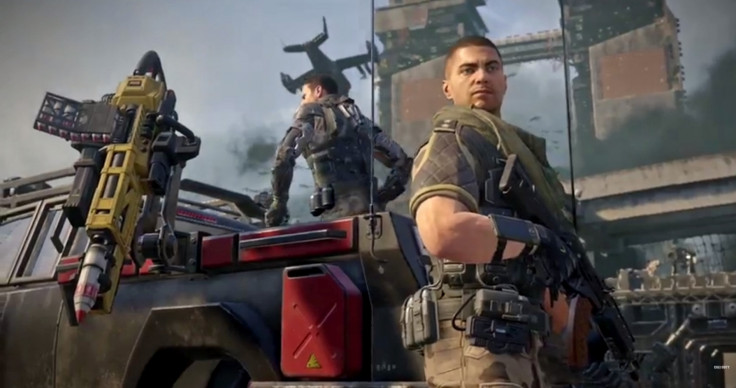Call Of Duty risks getting sucked into the past by going into the future

I think the designers of first-person shooters have gotten an idea in their heads that setting games in the future makes them more fun. It's conjecture on my part, admittedly, but my logic goes like this. Like a fantasy world, where you can introduce things such as magic, dragons, mythical creatures etc., the future as a setting is a kind of creative blank cheque. You can do anything with it.
You can have lasers, robots, fancy guns – you can exaggerate and invent anything. And exaggeration and invention are considered - particularly nowadays, in a climate of games like Minecraft and GTA, which prioritise exploration and choice - cornerstones of play. You set your game in the future and, since you have no real-world basis to adhere to or be shackled by, you can make up all these wacky, playful things. You can imagine a game that will be more "fun".
What underlies this is a confused, age-old game-makers adage, that fantasy is more fun than reality, that fiction is better than truth. I don't think that's universally correct, and it's a shame that the next Call Of Duty game, like its three most recent predecessors, is going to be set in the future.
Not long ago I had a conversation with Christopher Cross, one of the principle designers on the original Medal of Honor game. After watching the series depart from its Second World War origins, and become something akin to today's CoD, he'd had an idea for bringing it back down to Earth. The game would be set not in the future, or in a world entirely comprised of fiction – it'd be based on the stories of real Medal of Honor recipients.
The elevator pitch he gave to me – the one level of this game he described - sounded fantastic. Playing as an American artillery observer, you would have to run through an Italian town, calling in targets as you went. It would become clear, however, that in order to stall the German advance long enough for your own reinforcements to arrive, you would have call a strike directly on your own position, essentially sacrificing your life in order to save the rest of your platoon.
The futuristic setting feels like such a cop-out, an emblem of a developer unwilling to research his subject
As both drama and raw spectacle, it worked brilliantly. The mounting realisation of what you would eventually have to do, and then the terrifying moment of actually doing it, would be a harder gut punch than anything Call Of Duty has ever turned out, even that nuclear bomb sequence in the original Modern Warfare. Cross's idea demonstrated, to me at least, that first-person shooters grounded in reality could potentially be just as evocative and exciting as those bathed in fantasy. And it was because the whole thing, this idea for a level, was based on truth.
John R. Fox, a 29-year-old artilleryman from Cincinnati, Ohio, was the man who called the strike in on his own position, halting a German advance through Sommocolonia in Italy. He was posthumously awarded the Medal Of Honor in 1997 and his story, like so many others from the war, would make a fantastic videogame, not because it'd be exciting, flashy or "fun" necessarily, but because it'd be grounded. It's be educational. It'd mean something beyond making players feel buzzed.
The futuristic setting feels like such a cop-out, an emblem of a developer unwilling to research his subject. Not every game ought to fall under the rules of verisimilitude and history, but likewise, not every shooter be submerged entirely beneath fiction and fantasy. And that's all there is at the moment.
Call Of Duty is frolicking with the future and Battlefield is distracted with playing cops 'n' robbers. Videogames, in the mainstream particularly, seem almost proud to disassociate from the real-world, or to present it in only the most basic terms. Although the war shooters that currently exist, from MoH to the early Call Of Duty games, are not precisely Studs Terkel's The Good War, they at least say something about reality.
They at least come with some gravitas, some substance, some meat on their bones. They illustrate a better side of the gaming industry, a side that is prepared to do reading, and, rather than perpetually infantalise audiences, attempt to show them what's really going on. There's a great World War game still to be made - a great first-person shooter. By consistently looking to the future, designers, I think, are adhering to a type of videogame that should be left firmly in the past.
Ed Smith writes about games, films and culture for IBTimes UK. He has also written for The Observer, Vice, New Statesman and Edge magazine. Find him on Twitter @mostsincerelyed
© Copyright IBTimes 2024. All rights reserved.






